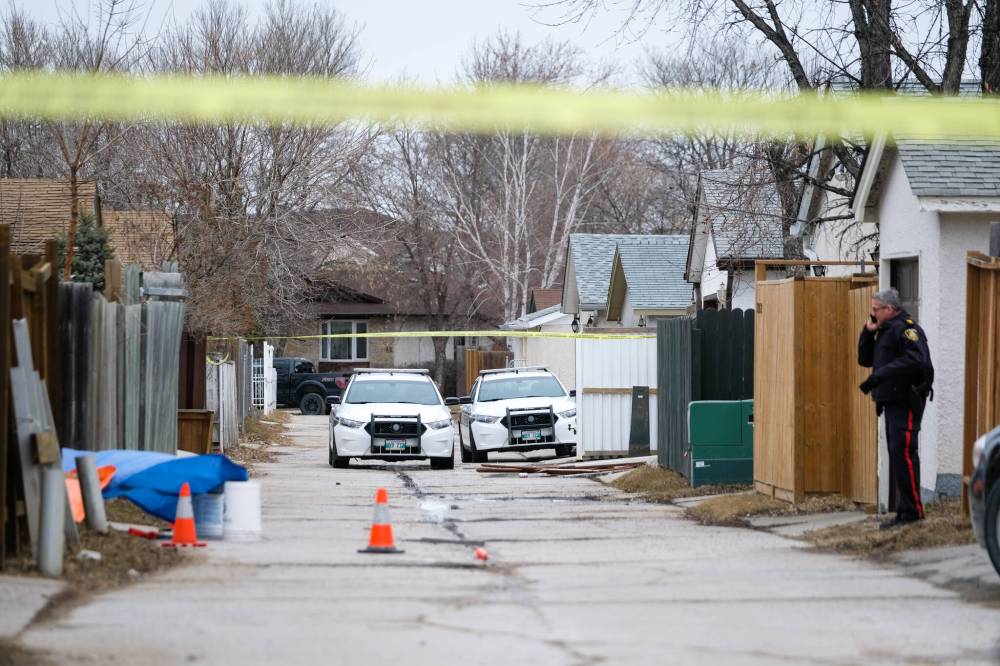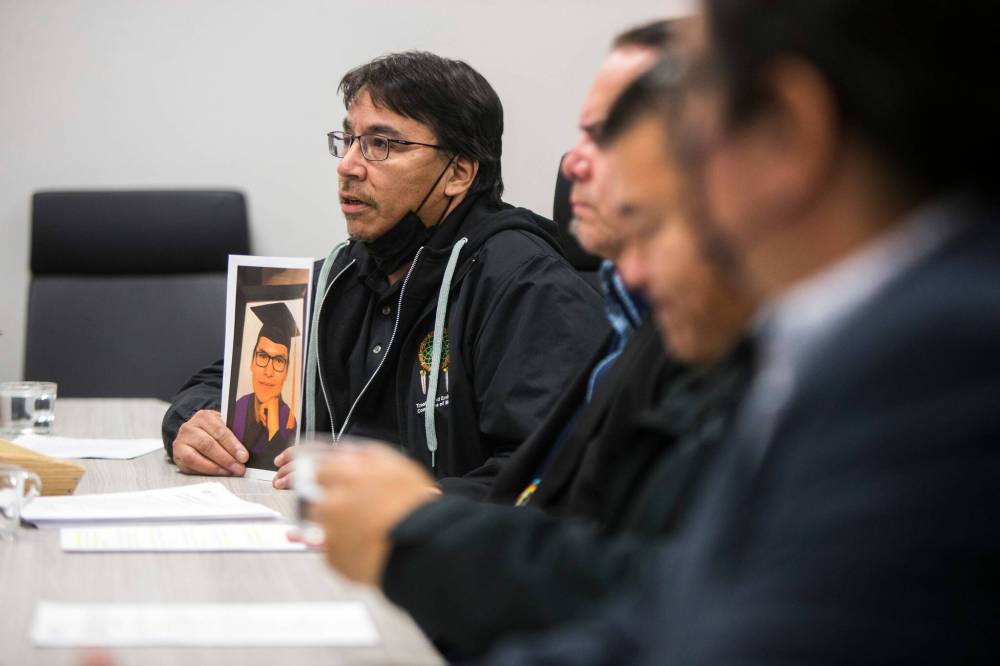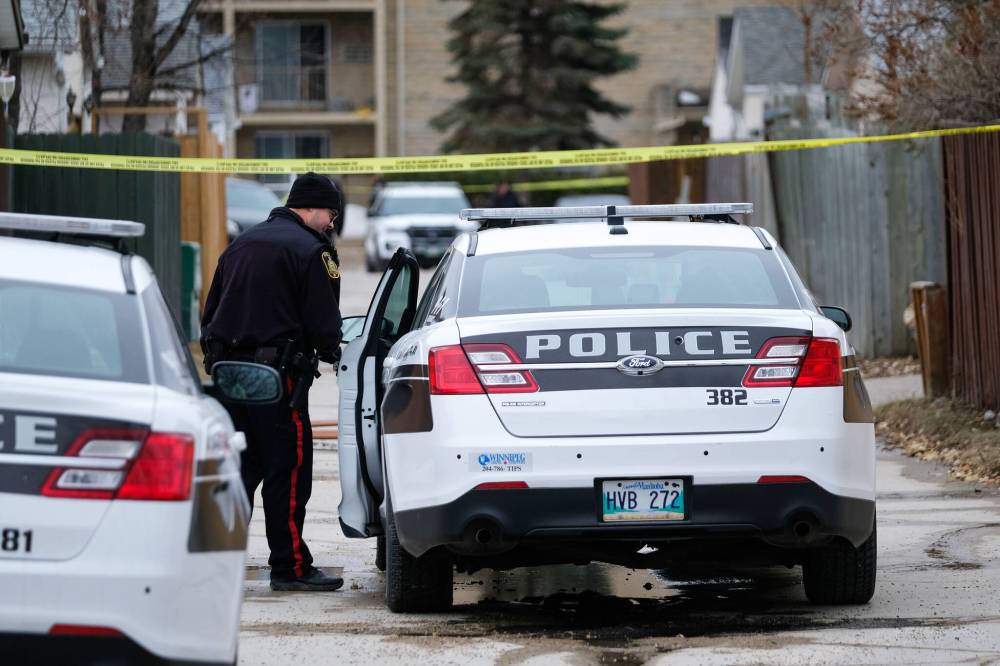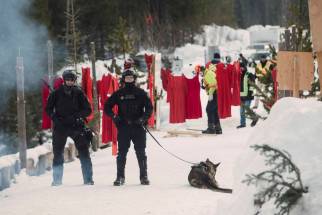Police Services Act changes good for IIU, public Compelling cops to co-operate will give watchdog sharper teeth, increase accountability
Read this article for free:
or
Already have an account? Log in here »
To continue reading, please subscribe:
Monthly Digital Subscription
$0 for the first 4 weeks*
- Enjoy unlimited reading on winnipegfreepress.com
- Read the E-Edition, our digital replica newspaper
- Access News Break, our award-winning app
- Play interactive puzzles
*No charge for 4 weeks then price increases to the regular rate of $19.00 plus GST every four weeks. Offer available to new and qualified returning subscribers only. Cancel any time.
Monthly Digital Subscription
$4.75/week*
- Enjoy unlimited reading on winnipegfreepress.com
- Read the E-Edition, our digital replica newspaper
- Access News Break, our award-winning app
- Play interactive puzzles
*Billed as $19 plus GST every four weeks. Cancel any time.
To continue reading, please subscribe:
Add Free Press access to your Brandon Sun subscription for only an additional
$1 for the first 4 weeks*
*Your next subscription payment will increase by $1.00 and you will be charged $16.99 plus GST for four weeks. After four weeks, your payment will increase to $23.99 plus GST every four weeks.
Read unlimited articles for free today:
or
Already have an account? Log in here »
Hey there, time traveller!
This article was published 03/12/2021 (1472 days ago), so information in it may no longer be current.
It’s unlikely proposed changes to the law governing Manitoba’s Independent Investigation Unit introduced this week would have changed the outcome of the investigation into last year’s police shooting death of Stewart Andrews. However, the amendments to the Police Services Act will give the IIU greater powers to hold cops accountable.

Andrews, 22, was fatally shot by a Winnipeg Police Services officer on April 18, 2020 after he allegedly charged at two officers while threatening them with a metre-long metal bar. As required by law, the IIU investigated the shooting. Manitoba’s prosecution branch concluded there was no likelihood of a criminal conviction and no charges were laid.
The two police officers involved say Andrews, a suspect in an earlier alleged robbery, came towards them swinging a metal bar and refused to drop it despite repeated demands by police to do so. Both cops said Andrews taunted them to “come here” and to “come on, come closer” as they demanded he drop the bar. The officer who fired five shots into Andrews said in a statement the suspect came within a metre-and-a-half of him before he discharged his firearm.
The toxicology report showed Andrews had enough alcohol in his blood to be moderately to severely intoxicated. Along with THC — the main psychoactive compound in cannabis — also found in his body, it’s likely Andrews was pretty high and his actions unpredictable.

No other witnesses saw what happened and there was no video evidence.
There are many unanswered questions. Why did the officer wait for Andrews to get that close? Could he have used an intermediate weapon, such as a Taser, to incapacitate him earlier? There may be a valid reason why he didn’t. Still, it’s disappointing the issue of intermediate force wasn’t addressed in the IIU report, even though the IIU sought the opinion of a use-of-force expert who reviewed the case.
If a Taser wasn’t an option, what choices did the officers have left? It’s not a cop’s job to get into a wrestling match with an armed suspect and risk death or serious injury. One of the two cops on the scene had a police dog. But turning the dog on Andrews could have resulted in serious injury or death to the animal with the suspect still armed.
The problem is none of these questions will be answered in court because no charges were laid. So the public is left largely in the dark.
The hope is some of these issues can be addressed through better legislation.
Bill 7, introduced by Justice Minister Cameron Friesen, will compel police officers to co-operate with IIU investigators or face penalties. The proposed changes come in response to criticism that cops don’t always fully co-operate with IIU investigations. They will not apply to the so-called subject officer, the one under investigation, because police have the same rights as the general public under Canada’s Charter of Rights to remain silent if accused of a crime. Even if subject officers were compelled to speak with investigators, it’s unlikely their evidence would be admissible in court if charges were laid.

Nevertheless, compelling witness officers and other police employees, including cadets, to fully co-operate by law, is a positive development. So is the proposed change to tighten language around a police service’s requirement to “immediately” report cases to the IIU when required.
The proposed amendments probably wouldn’t have changed the outcome of the investigation into the shooting of Andrews. Witness officers co-operated with investigators and the case was reported to the IIU immediately.
The shooting of Andrews was tragic. However, it’s unclear what could be done in law to prevent it from happening again.
tom.brodbeck@freepress.mb.ca


Tom has been covering Manitoba politics since the early 1990s and joined the Winnipeg Free Press news team in 2019.
Our newsroom depends on a growing audience of readers to power our journalism. If you are not a paid reader, please consider becoming a subscriber.
Our newsroom depends on its audience of readers to power our journalism. Thank you for your support.










